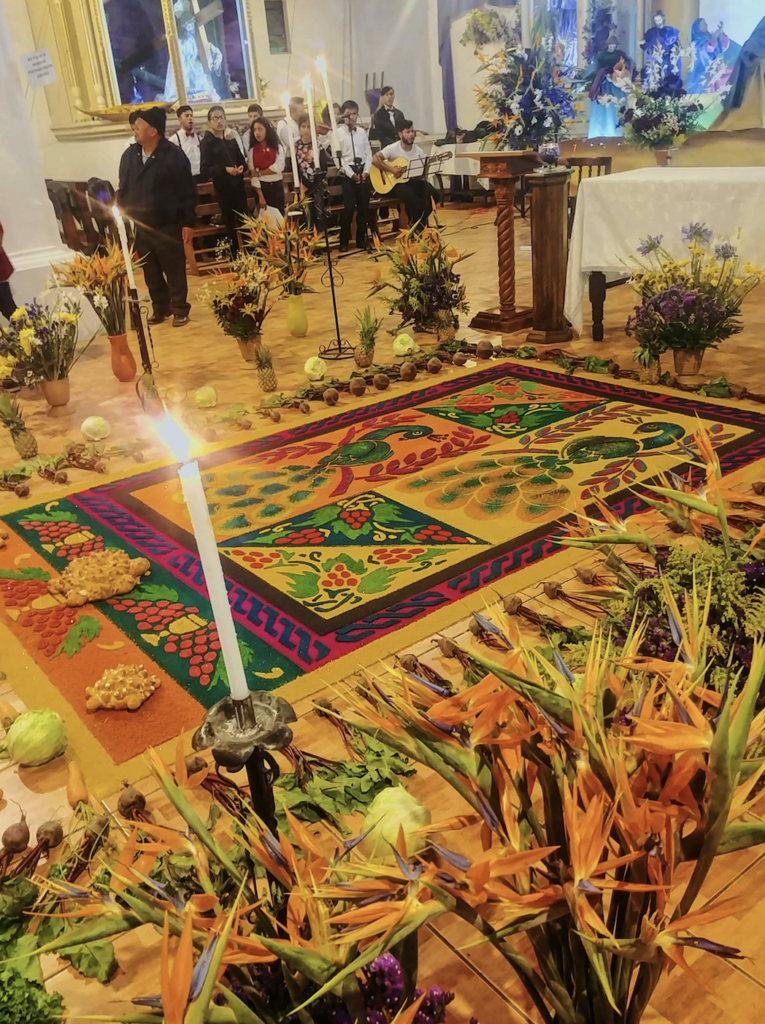Without internet for days, she had no idea of the havoc growing outside her little world in Guatemala. That was until her phone buzzed at 9 p.m. on Sunday, March 15. It read “Pack. And be ready to go at 8 a.m. the following morning.” Shock and confusion ensued. This is the harsh reality Marissa Lindstrom, NMU alumna and former rural development facilitator for Peace Corps Guatemala, faced. Lindstrom, along with thousands of other volunteers, were evacuated from services due to the coronavirus outbreak.
“I packed my two bags as quickly as I could and laid in bed, awake, until the neighbor’s rooster crowed. A van picked me up and took me to the Peace Corps office, where I was reunited with all the other volunteers. We were briefed. Borders were closing quickly,” Lindstrom said.
The Peace Corps is a U.S. government volunteer program with a mission to provide social and economic development by working with communities in developing countries. Lindstrom’s dedication helped to advance agricultural capability in rural areas of Guatemala that face high rates of food insecurity. She worked to give small scale farmers extra resources, allowing for better production. She began her work overseas in March, only serving three weeks of the two years she planned for initially.
“The Guatemalan president, a physician, made the decision that day at 10 a.m. to close commercial Guatemalan air space,” Lindstrom said. “Monday drew to a close and … options disappeared.”
In order to fly when commercial airspace is closed, Lindstrom said they needed to gain authorization for diplomatic flight status. It took four days to acquire this while the 168 Peace Corps volunteers camped out at a local hotel. After gaining the proper status, Peace Corps got two airline employees to assist with departure.
After boarding a diplomatic plane in the dark, partially closed airport, she and the other volunteers arrived in Miami. From there she returned to her hometown in Grand Rapids.
“After six days of movement and confusion, I am more than happy to be home,” Lindstrom said. “We will persevere through this. And as soon as the madness is over, you bet your bottom dollar I’ll be back serving on behalf of the Peace Corps and whipping up black beans with tortillas in my favorite little mortar house,” Lindstrom said.
Ryan Watling, NMU alumni and former Peace Corps youth development volunteer had a different experience.
Watling was stationed in the southern side of the Dominican Republic, near the city of Barahona. He worked with local youth, crafting leadership and other life skills like free time management. Watling served seven months with about 20 more months to go before he was sent home.
Unlike other homebound travel stories during the virus, Watling had no issues getting home. Peace Corps Dominican Republic was able to get approval from D.C. to evacuate all 149 volunteers just hours before worldwide operations were suspended.
“For me personally, I hope to return to the [Dominican Republic],” Watling said. “I want to continue the work in my community and establish sustainability. I was starting some unique and meaningful projects and I felt very integrated.”
For Watling, there is much to miss from his time spent in the Dominican Republic and many life-long memories.
“I felt bad having to pack up and leave suddenly with few goodbyes. I especially miss my host family, my soccer team, speaking Spanish and many aspects of the Dominican culture,” Watling said.
Although neither of these Wildcat Alumni finished their full terms, they remain optimistic. Sure the virus came on quickly, but it won’t last forever. Peace Corps volunteers must reapply after a break, but it seems that is a small price for these dedicated members. They both plan to return as soon as possible.































